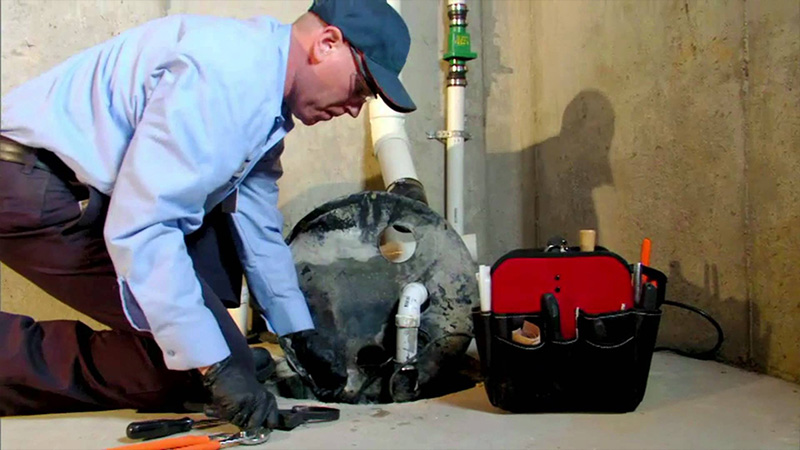High-grade Water Filtration Systems: Guaranteeing Clean and Pure Drinking Water
Wiki Article
Comprehending the Secret Parts of Effective Water Purification Solutions

Relevance of Water Purification Systems
Water purification systems play a crucial duty in making certain accessibility to safe and tidy alcohol consumption water by successfully getting rid of pollutants and impurities. These systems are essential in attending to the expanding concerns over water high quality and the possible wellness threats associated with taking in contaminated water. By utilizing different filtering systems such as reverse osmosis, turned on carbon, and UV sanitation, water purification systems can effectively eliminate dangerous materials like germs, viruses, heavy steels, and chemicals from the water system.Furthermore, water purification systems help to improve the preference and odor of water by eliminating chlorine, sediments, and other contaminants that can affect its quality. Pump repairs & installation. This enhancement in water high quality not only makes it more palatable yet additionally encourages individuals to consume alcohol an adequate quantity of water daily, advertising better hydration and total health
Types of Filtering Components

Physical filters are created to literally stress out contaminations from the water. These filters can be made of products like ceramic, carbon, or perhaps sand, and they function by trapping bits larger than the filter's pores as water travels through.
Chemical filters use different chemical processes to eliminate pollutants from the water. Instances consist of activated carbon filters, which adsorb contaminations, and reverse osmosis membrane layers, which use stress to separate impurities from the water.
Organic filters utilize living organisms like microorganisms or algae to damage down organic issue and pollutants in the water. These filters are usually used in wastewater therapy plants or all-natural water purification systems.
Comprehending the various types of filtration parts is vital for picking one of the most suitable water filtration system for certain purification requirements.
Feature of Debris Filters
Sediment filters play a critical duty in water purification systems by effectively recording strong fragments suspended in the water. These filters are usually the initial line of defense in a purification system, eliminating bigger fragments such as sand, silt, dust, and rust prior to the water relocates with finer purification phases. By trapping these debris, the filters prevent them from reaching downstream parts, thus expanding the life-span and effectiveness of the whole system.The function of sediment filters is crucial in keeping water high quality and safeguarding sensitive devices from damages triggered by particles. In addition, by removing noticeable bits, sediment filters enhance the clearness and preference of the water. Routinely cleaning up or changing debris filters is necessary to make certain optimal efficiency. Disregarding this maintenance can result in obstructing, lowered water circulation, and jeopardized filtering effectiveness. In general, debris filters are vital elements that add considerably to the effectiveness of water filtration systems.
Duty of Turned On Carbon Filters
Playing a crucial duty in water purification systems, activated carbon filters contribute in eliminating contaminations and pollutants from the Continue water. These filters are made to adsorb and catch a large range of pollutants, including chlorine, unstable organic substances (VOCs), pesticides, and herbicides. The activated carbon product has a big surface, enabling the efficient trapping of contaminants via a process called adsorption. As water goes through the filter, the triggered carbon brings in and holds onto the pollutants, ensuring that the water that appears beyond is cleaner and safer for usage.Turned on carbon filters are extremely effective at enhancing the preference and odor of water by lowering chemicals that can affect its high quality. Due to their convenience and integrity, activated carbon filters are a key part in making sure that water is purified to the greatest standards prior to getting to customers.
Recognizing Reverse Osmosis Equipments
Reverse osmosis systems are advanced water filtering systems that use an advanced procedure to remove impurities and impurities from drinking water. These systems work by using stress to the water, requiring it via a semi-permeable membrane. This membrane layer acts as a barrier, allowing only pure water molecules to pass through, while blocking larger molecules such as minerals, chemicals, and various other impurities. Because of this, the water that comes out beyond is substantially cleaner and safer for intake.One key benefit of reverse osmosis systems is their capacity to remove a large array of pollutants, including hefty steels, liquified solids, germs, and infections. This makes them very efficient in boosting the total top quality and safety of drinking water. Furthermore, reverse osmosis systems are fairly low-maintenance and can be installed under the sink or in a main purification system, offering convenient accessibility to tidy water throughout the house. On the whole, understanding exactly how reverse osmosis systems function can assist people make notified decisions about their water filtering requirements.
Conclusion
In final thought, reliable water purification systems are vital for making certain risk-free and tidy drinking water. The crucial parts of these systems consist of sediment filters, turned on carbon filters, and reverse osmosis systems. By understanding the feature and role of each part, individuals can make enlightened decisions when picking a water filtering system. It is necessary to try this site prioritize the quality of water in order to promote overall health and health.Water filtering systems play a crucial function in making sure accessibility to safe and clean alcohol consumption water by effectively getting rid of contaminations and impurities. By making use of various purification systems such as reverse osmosis, activated carbon, and UV sterilization, water purification systems can effectively get rid of harmful compounds like bacteria, infections, heavy steels, and chemicals from the click for info water supply.
Debris filters play an essential duty in water filtering systems by efficiently recording solid bits suspended in the water (Water Filtration Systems).Playing a critical duty in water filtration systems, turned on carbon filters are crucial in removing contaminations and contaminants from the water supply.Reverse osmosis systems are sophisticated water filtration systems that use an advanced procedure to get rid of contaminants and impurities from drinking water
Report this wiki page